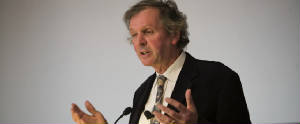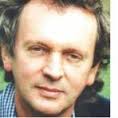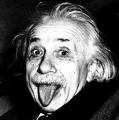|
|
 Why Bad Science Is Like Bad Religion Rupert Sheldrake, Ph.DIn both religion and science, some people are dishonest, exploitative, incompetent and exhibit other human failings. My concern here is with the bigger picture. I have been a scientist for more than 40 years, having studied at Cambridge and Harvard. I researched and taught at Cambridge University, was a research fellow of the Royal Society, and have more than 80 publications in peer-reviewed journals. I am strongly pro-science. But I am more and more convinced that the spirit of free inquiry is being repressed within the scientific community by fear-based conformity. Institutional science is being crippled by dogmas and taboos. Increasingly expensive research is yielding diminishing returns. Bad religion is arrogant, self-righteous, dogmatic and intolerant. And so is bad science. But unlike religious fundamentalists, scientific fundamentalists do not realize that their opinions are based on faith. They think they know the truth. They believe that science has already solved the fundamental questions. The details still need working out, but in principle the answers are known. Science at its best is an open-minded method of inquiry, not a belief system. But the "scientific worldview," based on the materialist philosophy, is enormously prestigious because science has been so successful. Its achievements touch all our lives through technologies like computers, jet planes, cell phones, the Internet and modern medicine. Our intellectual world has been transformed through an immense expansion of scientific knowledge, down into the most microscopic particles of matter and out into the vastness of space, with hundreds of billions of galaxies in an ever-expanding universe. Science has been successful because it has been open to new discoveries. By contrast, committed materialists have made science into a kind of religion. They believe that there is no reality but material or physical reality. Consciousness is a by-product of the physical activity of the brain. Matter is unconscious. Nature is mechanical. Evolution is purposeless. God exists only as an idea in human minds, and hence in human heads. These materialist beliefs are often taken for granted by scientists, not because they have thought about them critically, but because they haven't. To deviate from them is heresy, and heresy harms careers. Since the 19th century, materialists have promised that science will eventually explain everything in terms of physics and chemistry. Science will prove that living organisms are complex machines, nature is purposeless, and minds are nothing but brain activity. Believers are sustained by the implicit faith that scientific discoveries will justify their beliefs. The philosopher of science Karl Popper called this stance "promissory materialism" because it depends on issuing promissory notes for discoveries not yet made. Many promises have been issued, but few redeemed. Materialism is now facing a credibility crunch unimaginable in the 20th century. As I show in my new book, "Science Set Free," unexpected problems are disrupting the sciences from within. Many scientists prefer to think that these problems will eventually be solved by more research along established lines, but some, including myself, think that they are symptoms of a deeper malaise. Science is being held back by centuries-old assumptions that have hardened into dogmas. Despite the confident claim in the late 20th century that genes and molecular biology would soon explain the nature of life, the problems of biological development remain unsolved. No one knows how plants and animals develop from fertilized eggs. Many details have been discovered, hundreds of genomes have been sequenced, but there is still no proof that life and minds can be explained by physics and chemistry alone. The technical triumph of the Human Genome Project led to big surprises. There are far fewer human genes than anticipated, a mere 23,000 instead of 100,000. Sea urchins have about 26,000 and rice plants 38,000. Attempts to predict characteristics such as height have shown that genes account for only about 5 percent of the variation from person to person, instead of the 80 percent expected. Unbounded confidence has given way to the "missing heritability problem." Meanwhile, investors in genomics and biotechnology have lost many billions of dollars. A recent report by the Harvard Business School on the biotechnology industry revealed that "only a tiny fraction of companies had ever made a profit" and showed how promises of breakthroughs have failed over and over again. Despite the brilliant technical achievements of neuroscience, like brain scanning, there is still no proof that consciousness is merely brain activity. Leading journals such as Behavioural and Brain Sciences and the Journal of Consciousness Studies publish many articles that reveal deep problems with the materialist doctrine. The philosopher David Chalmers has called the very existence of subjective experience the "hard problem." It is hard because it defies explanation in terms of mechanisms. Even if we understand how eyes and brains respond to red light, the experience of redness is not accounted for. In physics, too, the problems are multiplying. Since the beginning of the 21st century, it has become apparent that known kinds of matter and energy make up only about 4 percent of the universe. The rest consists of "dark matter" and "dark energy." The nature of 96 percent of physical reality is literally obscure. Contemporary theoretical physics is dominated by superstring and M theories, with 10 and 11 dimensions respectively, which remain untestable. The multiverse theory, which asserts that there are trillions of universes besides our own, is popular among cosmologists in the absence of any experimental evidence. These are interesting speculations, but they are not hard science. They are a shaky foundation for the materialist claim that everything can be explained in terms of physics. Good science, like good religion, is a journey of discovery, a quest. It builds on traditions from the past. But it is most effective when it recognizes how much we do not know, when it is not arrogant but humble. Rupert Sheldrake, Ph.D., is a biologist and author of Science Set Free. He was a Fellow of Clare College, Cambridge University, where he was Director of Studies in cell biology, and was Principal Plant Physiologist at the International Crops Research Institute for the Semi-Arid Tropics in Hyderabad, India. From 2005-2010 he was Director of the Perrott-Warrick Project, funded from Trinity College, Cambridge. His web site is www.sheldrake.org. 
Author and Scientist: Rupert Sheldrake The science delusion is the belief that science already understands the nature of reality. The fundamental questions are answered, leaving only the details to be filled in. In this book, Dr Rupert Sheldrake, one of the world's most innovative scientists, shows that science is being constructed by assumptions that have hardened into dogmas. The sciences would be better off without them: freer, more interesting, and more fun. According to the dogmas of science, all reality is material or physical. The world is a machine, made up of dead matter. Nature is purposeless. Consciousness is nothing but the physical activity of the brain. Free will is an illusion. God exists only as an idea in human minds; imprisoned within our skulls. But should science be a belief-system, or a method of enquiry? Sheldrake shows that the materialist ideology is moribund; under its sway, increasingly expensive research is reaping diminishing returns. In the sceptical spirit of true science, Sheldrake turns the 10 fundamental dogmas of materialism into exciting questions, and shows how all of them open up startling new possibilities. The Science Delusion will radically change your view of what is possible. And give you new hope for the world.  A Free Spirit "A human
being is part of a whole, called by us the "Universe," a part limited in time and space. "The finest emotion of which we are capable is the mystic emotion Herein
lies the germ of all art and all true science Anyone to whom this feeling is alien, who is no longer capable of wonderment and lives in a state
of fear is a dead man. To know that what is impenetrable for us really exists and manifests itself as the highest wisdom and the most radiant beauty, whose gross forms alone are intelligible to our poor faculties - this knowledge, this feeling ... that is the core of the true religious sent iment. In this sense, and in this sense alone, I rank myself among profoundly religious men." "The intuitive mind is a sacred gift and the rational mind is a faithful servant. We have created a society that honors the servant and has forgotten the gift." "It is a magnificent feeling to recognise the unity of complex phenomena which appear to be things quite apart from the direct visible truth." Albert Einstein
 |